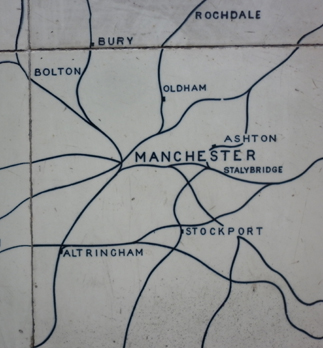The security arrangements for the Manchester Arena should have prevented or minimised the devastating impact of the suicide terror attack of May 22, 2017. They failed to do so. That is among the findings of the first of three reports by the official inquiry into the event.
The concert business SMG, its event security contractor Showsec and British Transport Police (BTP) are principally responsible for the ‘missed opportunities’, says the report. It speaks also of ‘failings by individuals’, as brought out during evidence given during the Inquiry so far, which began hearings in September 2020.
In a preface to the 200-page report, the Inquiry chairman Sir John Saunders stressed that the responsibility for the act of terrorism lay with the suicide bomber. Sir John wrote that the Inquiry sought to make recommendations to reduce the risk of such an event happening again and, if it does, mitigate the harm it causes.
The report is in eight parts, ending with recommendations. It begins with ‘missed opportunities’ in the days before the May 22 attack; the security set-up at the Arena, between the stewarding and event security contractor Showsec and the Arena operator SMG, and ‘commercial pressures’; the ‘statutory context’ of the licensing of the site, health and safety and Security Industry Authority regulation of contract security officers (and not stewards); the CTSA (police counter terrorism security adviser) scheme; input from official experts on counter-terrorism to SMG; the terrorism threat mitigation measures that supplier Showsec and client SMG carried out; and the policing (by British Transport Police, as Victoria rail station is next door, besides Greater Manchester Police) of the City Room outside the concert hall where the explosion took place as the Ariana Grande concert ended and concert-goers began leaving.
The ‘missed opportunities’ began with hostile reconnaissance by the bomber, who was in his native Libya the month before the attack until May 18 and then back in Manchester carried out three visits to the Arena, the last one on the afternoon of the evening concert; the detonation was at 10.31pm.
After this first volume of the Inquiry report – which Sir John linked to the Home Office’s proposed and likely upcoming ‘Protect duty’, placing a legal responsibility on public places, besides venues, for the safety of people from terrorism – will come a second on the emergency response to the attack, including whether any lives of the victims may have been saved by prompter response; and volume three on ‘whether the Security Service and Counter Terrorism Police could and should have prevented the attack’, and whether and how the suicide bomber became radicalised.
For the report visit https://manchesterarenainquiry.org.uk/.
See also the report’s recommendations.









